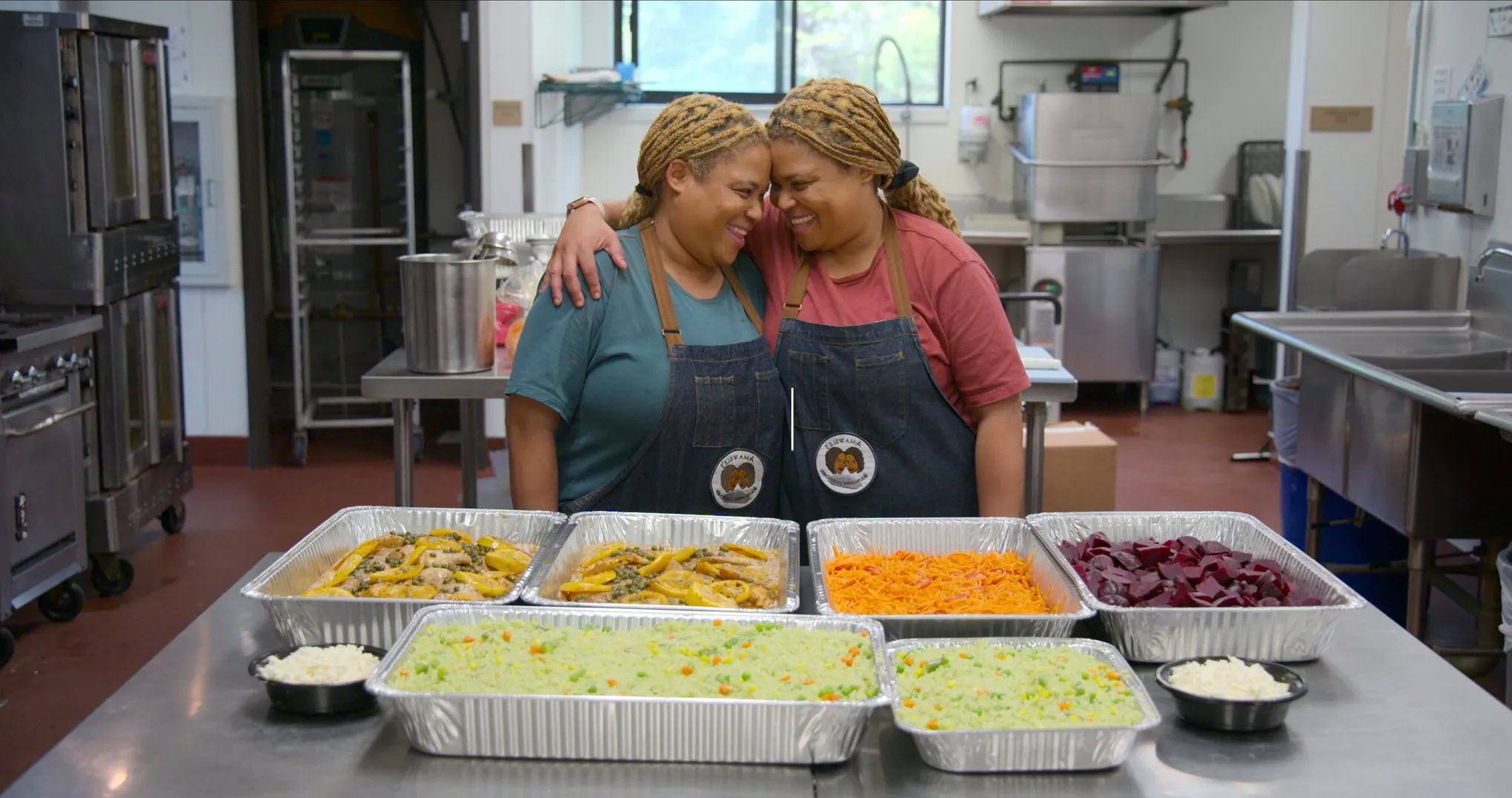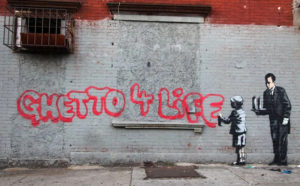Have you seen the new Netflix docuseries, You Are What You Eat? Although I found it disappointing, I did feel defensive for the filmmakers, when I started to read so many of the negative reviews online (49% from Rotten Tomatoes). Most of the film’s criticism has little to do with its details, and a lot more to do with the big idea of how plant-based diets not only improve health and wellness, but also reverse disease! The concept alone is threatening to countless members of the establishment (Health-care/Sick-care, US Food System, US Corporate Media, Big Pharma, Big Ag, etc.), primarily because people consuming health promoting plant-based diets is not good for business (fewer diseases, doctor appointments, procedures, treatments, hospital stays, pharmaceutical drugs, junk food adverts, etc.). Additionally, there is also a large demographic that wants to hear only good things about their bad habits, and fancy no part of feeling guilty about the misery (animals) on their plates. On the other hand, the documentary’s pro-plant-based diet theme, may also explain why so many of the vegan related websites gave such glowing reviews, without mentioning the many missed opportunities and mistakes of the film.
Louie Psihoyos is the director of You Are What You Eat, and his credits include, The Cove, which won an Oscar for Best Documentary in 2010, and The Game Changers, which is still the most downloaded iTunes documentary of all time (and one of the best films ever on the power of plant-based nutrition). Mr. Psihoyos is a major talent, who has directed some unforgettable films. I am a great admirer of his work, which is why it is painful to report that I found, “You Are What You Eat”, to be at best, underwhelming.
Okay, so here is the Good, the Bad, and the Ugly on You Are What You Eat: A Twin Experiment (4 Netflix episodes):
THE GOOD (takeaways):
– People are unique to some degree, so working with twins who have the same genetic make-up adds a little more credibility to the conclusions of the study.
– The US food system has been changing in a dangerous way for the last 80-100 years. It is no surprise that 75% of Americans are either overweight or obese on the Standard American Diet (SAD).
– Plant-based diets can slow the aging process, and can even make a difference in just 8 short weeks!
– Our current food system is broken and billions of animals (sentient beings) are enduring unimaginable suffering, each and every second in order to satisfy people’s flavor preferences, and to make the wealthiest 1%, richer.
– The US is the wealthiest country in the world, and yet food apartheid areas are common, and 1 in 4 US households are food insecure (I should know, I worked in a few of those communities).
– Big Ag (animal agriculture) is arguably, the leading contributor to the climate crisis, and the most destructive industry facing our planet today.
– Our gut health is connected to our overall health in big ways.
– Participants on a plant-based diet saw more significant reductions in the “bad” LDL cholesterol and fasting insulin levels and lost more weight than omnivores.
– The study provides more proof that a regular vegan diet is far healthier than any conventional omnivore diet.
– Healthy plant-based diets can prevent, and even reverse most forms of heart disease.
– Diet trumps genetics.
– Body Mass Index (BMI) may be a poor measure of health, as BMI generally overestimates body fat tissue on those with more lean body mass, and underestimates excess body fat on those with a smaller body type. The docuseries introduces something called the DEXA scan which can “differentiate between bones, fat and muscle”. The scan looks at the entire body composition, and safety concerns notwithstanding, appears to be a more reliable way of measuring body fat.
THE BAD:
– Leaving the participants (twins), to their own devices for half of the two month program was a bad idea. A quick 5 minute Google search found that all of the participants reverted back to some form of their previous Standard American Diets (SAD). The study’s results could have been even more impressive, had the participants remained on a “supervised”, healthy plant-based diet for the entire 8 weeks.
– Many vegans and plant-based diet advocates raved about the film because there is little to cheer about oftentimes, as the mainstream media is flooded with lies, and disinformation
– In order to satisfy the many naysayers who cannot accept the science, and the power of plant-based nutrition, the documentary repeatedly suggests that an omnivore diet, although less healthy than a vegan diet, can still be a “healthy” diet. The science shows that if you insist on eating animal products, you should keep your overall caloric intake to less than 5% of your total calories. If you exceed the 5% threshold, you are more likely to trigger diseases, like cancer. Unfortunately, most Americans on the Omnivore or Standard American Diet (SAD), get between 30-40% of their calories from animal products.
– I am not sure why NYC Mayor Eric Adams, and Senator Cory Booker, had so much air time as advocates for plant-based diets. They were fine, but there are plenty of more inspiring voices in the vegan movement. Plus, most politicians are corrupt on some level, and that could, theoretically, come back to negatively impact the credibility of the film.
THE UGLY:
– One bad review of the docuseries quoted a Registered Dietitian (RD), Megan Hilbert, who argued that vegan diets are dangerous because “vegans don’t get enough vitamin B12”, and plenty of B12 can be found in carnivore diets. Does Megan know that 40% of Americans are deficient in B12, and that the only scientifically proven way to reverse heart disease, early stage prostate cancer, and type 2 diabetes is through a low-fat, whole food plant based diet? Oh right, she is part of the establishment, and her gig is to tell people what they want to hear, so that she can be embraced by her tribe, and profit from everyone’s suffering.
– A second bad review was published by the Seattle Times, and was authored by another RD, Carrie Dennett. Apparently, Ms. Dennett has never read a study, or books on plant-based nutrition, as she defended cheese, downplayed the toxicity of processed meats, denied that Big Ag is destroying our planet, and called the filmmakers alarmists. This is a “registered dietitian” who again, is threatened by the truth because it would negatively impact her ability to maximize profits by regurgitating establishment tropes.
– The film interviews Impossible Foods founder Patrick Brown and promotes the Impossible Burger, and other Impossible products. The filmmakers fail to mention that many of the Impossible Foods ingredients are genetically modified, and that their products often contain high levels of glyphosate. Why did the filmmakers ignore the risks that GMOs present to people’s health, animals, and our only planet?
– The film suggests too that regenerative farming is a good thing. As per Oxford University, “This report concludes that grass-fed livestock are not a climate solution. Grazing livestock are net contributors to the climate problem, as are all livestock. Rising animal production and consumption, whatever the farming system and animal type, is causing damaging greenhouse gas release and contributing to changes in land use. Ultimately, if high consuming individuals and countries want to do something positive for the climate, maintaining their current consumption levels but simply switching to grass-fed beef is not a solution. Eating less meat, of all types, is.”
– The film also kept going to Marion Nestle as if she is a credible source. Marion Nestle has done important work, but she has also said some bat-shit crazy things too. I attended a lecture at New York University (NYU) last year where she was making outrageous statements, and yet nobody called her out (I kept my mouth shut too because it was a day of celebration for Frances Moore Lappe’s exemplary career). Here are a couple Marion Nestle gems from the event: 1.“I think animals have a place in the diet, and the question is how to have them have a smaller place.” 2. “groups who don’t eat any animal products, don’t care at all about dairy farmers.” 3. “People like me, who like cheese and ice cream (changes her vocal tone to baby talk). I’m sorry, but I do (crowd giggles)…” 4. “small amounts of meat, they make people healthier.” 5. Most of the dietary recommendations that are coming from big international bodies now are suggesting that in developed countries like ours we should reduce our meat consumption by half.” Yikes.
The Bottom Line? If you have read The China Study, or have just a vague idea of the power of plant-based nutrition, you will likely be bored with this docuseries. However, if you are open minded, and new to the idea of adopting a vegan diet, you could do a lot worse. Despite its flaws, You Are What You Eat does a lot of things well too. Overall grade? A whopping C+ of course!
Sources:
Click here to learn more from Stanford University on the making of You Are What You Eat.
Click here to learn more about this film from VegNews.
Click here to learn more from Rotten Tomatoes.
Click here to learn more about the dangers of glyphosate from the Environmental Working Group (EWG).
Click here to learn more about the high amounts of glyphosate in Impossible Burgers.
Click here to learn more about the dangers of GMO products like Impossible Foods from Anna Lappe (Frances Moore Lappe’s daughter), and the Food Revolution Network.
Click here to learn more from Oxford University.
Click here to learn more about why regenerative grazing is a flawed concept.
Click here to learn more about Frances Moore Lappe, and Marion Nestle’s crazy statements in a PBDR! post from last year.
Click here for the superb presentation from Dr. Milton Mills titled, “Are humans designed to eat meat?”
Click here to learn more about the mystique of protein and its implications from the legendary Dr. T. Colin Campbell.
Click here to learn more from Dr. T. Colin Campbell.
Click here to learn more from Dr. Brooke Goldner on whether humans need meat in their diets.




